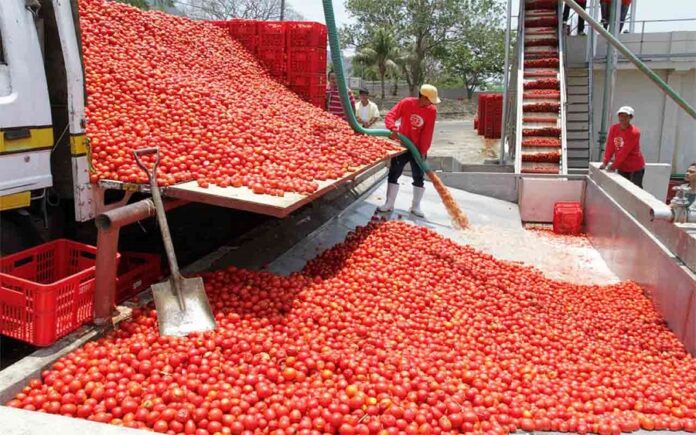The Managing Director, Dangote Tomato Processing plant in Kadawa, Kano State, Abdulkarim Kaita, has called on the Federal government to put a total ban on the importation of tomato paste into the country.
He made the call while flagging off the distribution of tomato seedlings to 5,000 farmers under the Anchor Borrowers programme of the Central Bank of Nigeria on Thursday at Kadawa village in Kura Local Government Area.
“We are appealing to the Federal Government to put a total ban on the importation of tomato like what it did to rice,” Kaita said.
He said the call was necessary to boost local production of the commodity and ensure that Nigeria was self sufficient in tomato production.
According to him, the ban on the importation of tomato paste would lead to the establishment of more tomato processing plants, thereby creating job opportunities for many people in the country.
He lamented that the importation of tomato paste was still thriving as the commodity was being imported from Cameroon and Cotonour in Benin Republic.
According to him, the company had on several occasions visited the Customs Headquarters and met the Controller General with a view to lodging complaint over the issue, but nothing was done to check the ugly trend.
“It is only by putting a total ban on tomato importation that the government can encourage farmers to grow the commodity for the country to be self sufficient,” he said.
He said the company was working with the CBN under the Anchor Borrowers programme to provide tomato farmers with high yield seeds which would enable them to produce a minimum of 40 tons per hectare.
The company, he mentioned, was putting a lot of effort to ensure that Nigeria was self sufficient in tomato production by establishing the biggest greenhouse in Africa, which had the capacity to produce 350 million seedlings annually.
He said, “There are 12 major tomato producing states in the country which if fully cultivated, in the next one year Nigeria will be able to start exporting tomato.”


